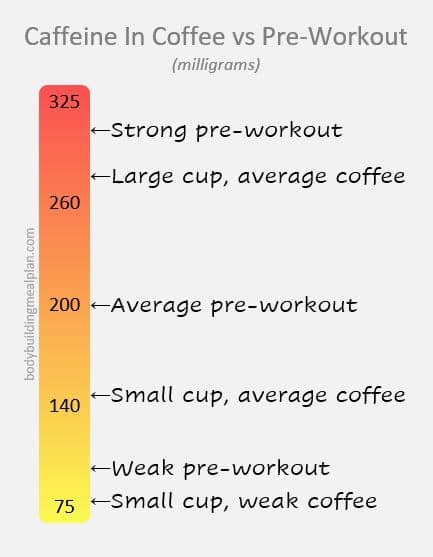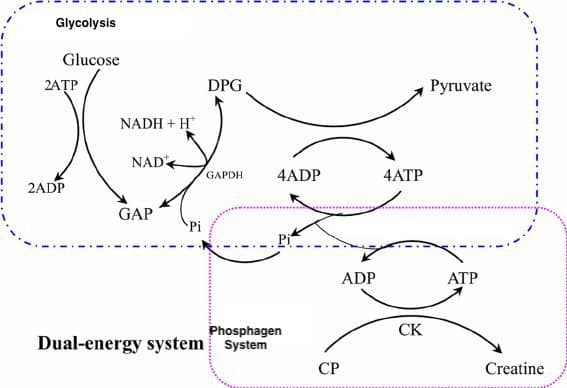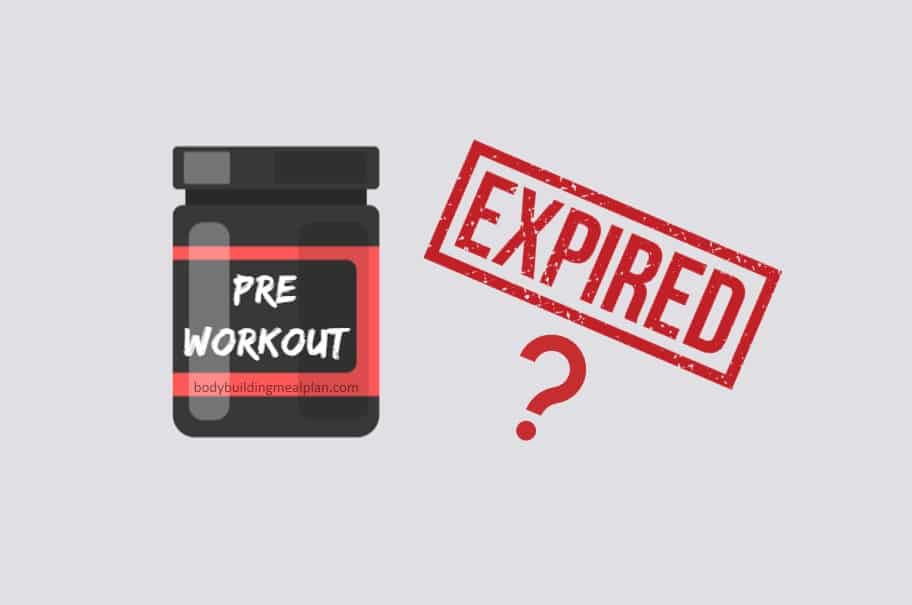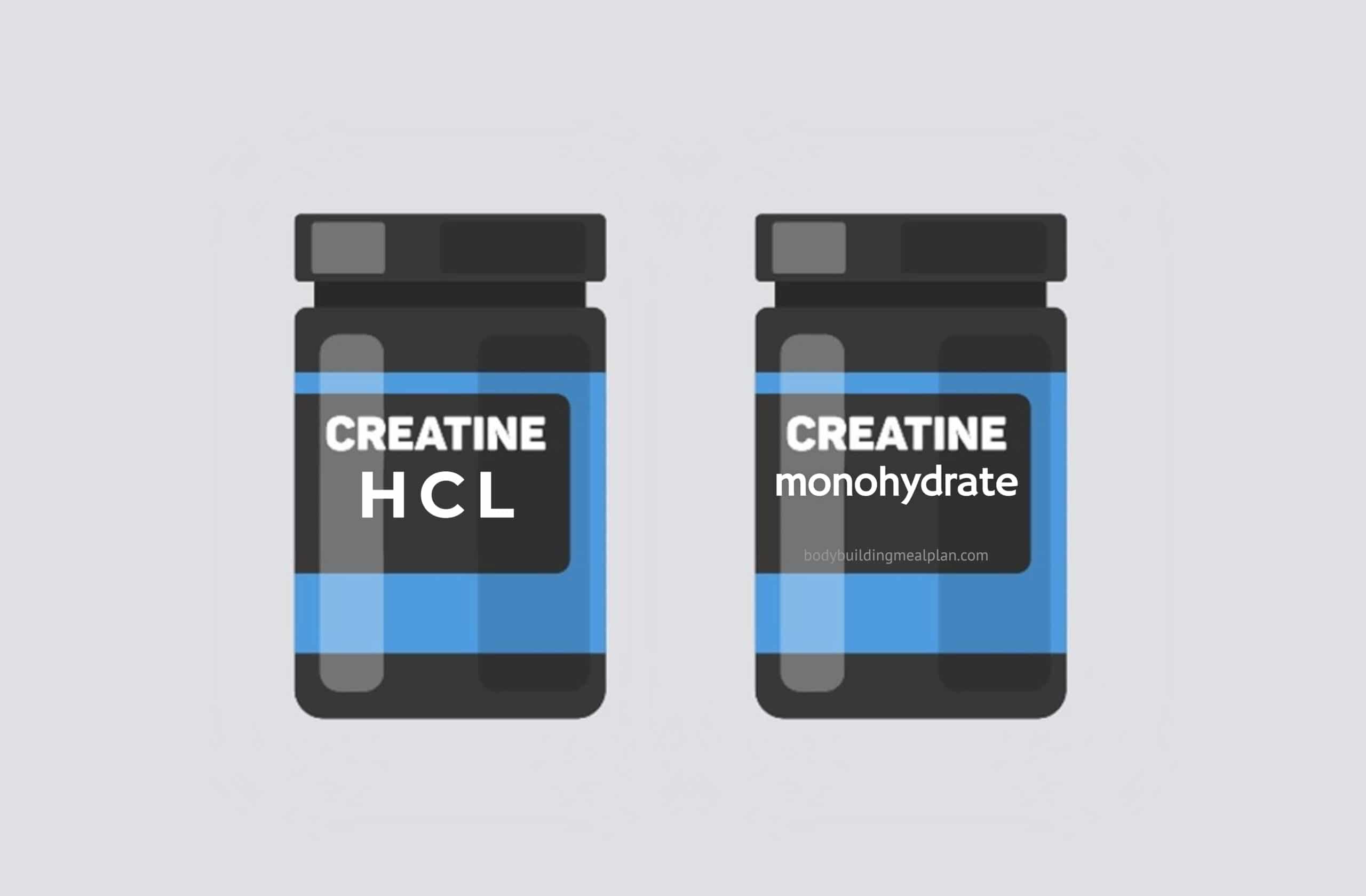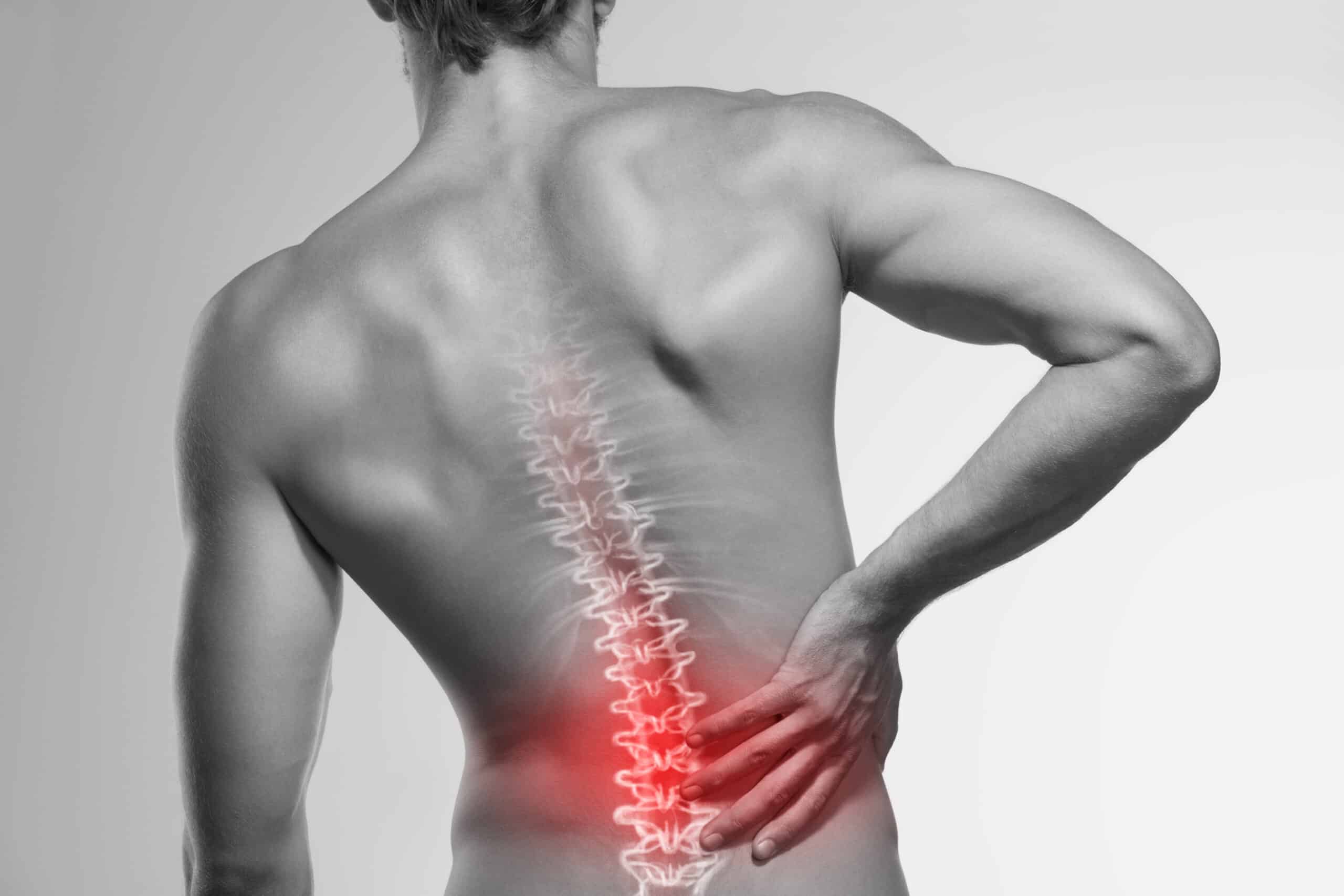How Long Does Pre-Workout Last?
By: Jeremy Fox, CNC, CPT – Published: March 2, 2022
Have you ever taken your pre-workout and not made it to the gym right away? In that situation, you might have asked yourself, “how long does pre-workout last?”
Without answering this question, you might waste your pre-workout or have a low-energy workout. And it might feel like a race against an unseen clock.
That’s why I’m going to explain how long pre-workout lasts based on actual data. So you’ll know when to take it and how much time you have to hit the gym.
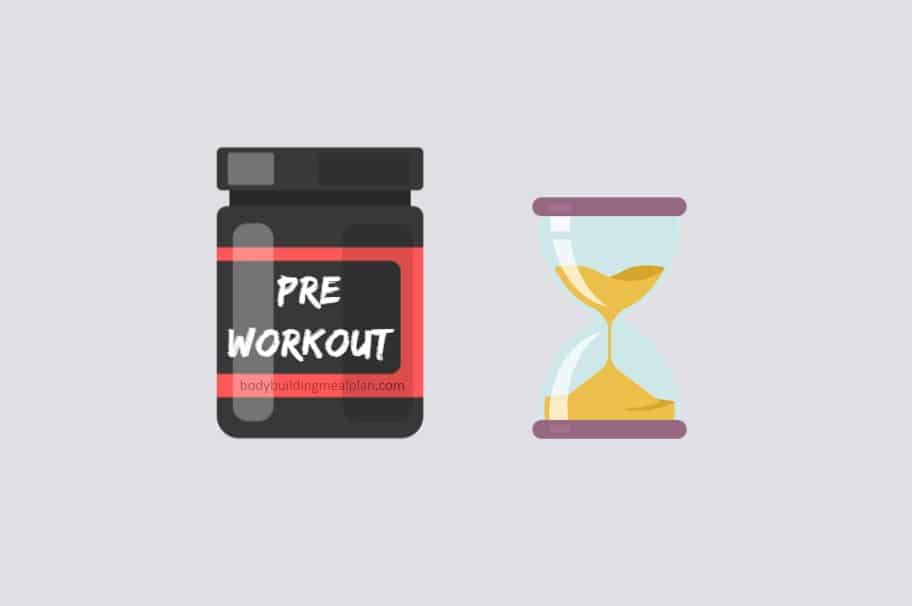
What Is Pre-Workout?
Pre-workout is a multi-ingredient supplement designed to increase performance during exercise. You take this supplement before a resistance training workout, as the name suggests.
Many pre-workout supplements come as a powder that you mix with water and drink. However, there are some pre-workout products sold in liquid form.
What Does Pre-Workout Do?
Pre-workout increases performance during exercise by boosting energy, increasing blood flow to the muscles, and delaying fatigue. Supplements achieve these effects through a combination of stimulants and specific amino acids.
How Long Does Pre-Workout Last?
Most pre-workout supplements last about 60 to 90 minutes after ingestion. That means you will notice diminishing performance about an hour and a half after taking pre-workout.
However, the duration for which you see results also depends on the ingredients and the dosage. So it’s important to know what’s in your pre-workout to understand better how long it lasts.
What’s In Pre-Workout?
While formulations vary between brands, a few key ingredients are found in nearly all pre-workout supplements. These ingredients are caffeine, l-arginine, and, beta-alanine.
Caffeine
Caffeine is a stimulant that works by inhibiting the degradation of intracellular cyclic AMP (cAMP) and delaying fatigue. In other words, it doesn’t really give you energy, but it does make you feel less tired.
Moreover, caffeine is helpful during a workout because it can improve your stamina1. In addition, studies suggest that caffeine positively affects your metabolic rate, which can promote fat loss2.
The amount of caffeine in a pre-workout supplement can range from 100 to 300mg. By comparison, an average cup of coffee contains about 150mg of caffeine.
Multiple studies verify that the effects of caffeine peak after about 90 minutes3,4. But it can take 6 hours or more for your heart rate to return to baseline.
L-Arginine or Citrulline
L-arginine is an amino acid that relaxes blood vessels and allows more blood to pass through. This temporary increase in vascularity and muscle volume is called “the pump.”
L-citrulline works similarly to arginine to dilate blood vessels. You may see either one of these amino acids in your pre-workout supplement, but usually not both.
With increased blood flow, more oxygen and nutrients get into the muscles. And that can enhance recovery and growth.
One study showed that a 6-gram dose of l-arginine was eliminated from the bloodstream in 50-120 minutes. And, on average, you have 80 minutes to capitalize on the increased pump effect5.
Beta-Alanine
Beta-alanine delays fatigue by buffering the pH levels in the presence of lactic acid. This effect allows for more intense training sessions.
A meta-analysis showed that people supplementing with beta-alanine significantly increased their exercise capacity6. That is, the amount of time they could work before getting fatigued.

Unlike other amino acids, beta-alanine isn’t used directly. Instead, it enables your muscles to store more carnosine over time, and that increases performance.
Studies show that taking 3.2 grams of beta-alanine per day resulted in a 40% increase in muscle carnosine levels after four weeks7. Therefore, the exact timing of your pre-workout drink is not as critical for beta-alanine.
Creatine
Creatine is another common ingredient found in pre-workout supplements. And it’s a vital component of the ATP energy pathway you use during resistance training.
While weightlifting, your body uses up the available ATP within a matter of seconds. Then your muscles fail, and you can’t perform any more reps. But after a few minutes, ATP regenerates, and you can perform another set.
Creatine supplies phosphate, which helps ATP regenerate faster. Providing this cellular energy allows you to train harder and longer than you usually would8.
Like caffeine, creatine reaches peak concentration in your blood 90 minutes after taking it4. And it stays in your bloodstream for about 6 hours.
However, like beta-alanine, the timing of creatine intake may not matter as much as the daily dosage. And you don’t even have to take creatine before your workout!
Is Creatine Pre-Workout?
While creatine is a common ingredient in pre-workout, it is not considered an immediate performance enhancement supplement. Therefore, it is not the same thing as your typical pre-workout supplement.
Still, whether you should take creatine before your workout is a hotly debated topic – some experts say take creatine before your workout since it gets used during exercise. But others say take it immediately after a workout when your body maximizes nutrient uptake.
However, it seems more likely that timing isn’t the critical factor. Instead, what matters is muscle saturation or the total amount of creatine available in your body’s stores.
That said, one study showed that taking creatine with dextrose (carbs) significantly increased whole-body creatine retention9. For this reason, I recommend taking it with your post-workout meal or shake since that usually contains high glycemic carbs.
Related: Does Creatine Make You Gain Weight?
When To Take Pre-Workout
The best time to take your pre-workout depends on the duration of your workout. You want enough time for the ingredients to kick in, and you don’t want the effects to wear off before your workout ends.
For example, the best time to take a pre-workout for a one-hour training session is 30 minutes before. That way, the caffeine kicks in, but the effects also don’t wear off before your training is complete.
Put another way, taking a pre-workout 30 minutes before exercising gives you about a 60-minute window of maximum performance enhancement.

On the other hand, you may want to take pre-workout immediately before exercising if you have longer training sessions. You won’t feel the energy right away, but you prolong the effects of the other ingredients.
As you can see, the problem is the different times at which the active ingredients take effect and wear off. In addition, differences in dosages and ingredients make it hard to know when to take pre-workout.
One way around this timing problem is buying the pre-workout ingredients separately and mixing your own supplement. This may sound like a lot of work, but it’s super easy and saves you up to 70% compared to name-brand pre-workout supplements.
Click here for my top 5 homemade pre-workout recipes.
How Long Does Pre-Workout Last Before It Goes Bad?
Now you know how long pre-workout lasts after you take it. But how long does pre-workout last before it expires?
You’ve probably wrestled with this question if you’ve ever found an old tub of pre-workout in the back of your cabinet. But before you take a scoop, make sure you know how to tell if your pre-workout is bad!
Click here to find out if pre-workout goes bad and how to know if your pre-workout is safe to use.
With this information, you can optimize your workouts by taking your pre-workout at the right time. And make sure you check out these other articles to get answers to all your fitness questions!
References
1) Dodd, Stephen L., Robert A. Herb, and Scott K. Powers. “Caffeine and exercise performance.” Sports medicine 15.1 (1993): 14-23.
2) Tabrizi, Reza, et al. “The effects of caffeine intake on weight loss: a systematic review and dos-response meta-analysis of randomized controlled trials.” Critical reviews in food science and nutrition 59.16 (2019): 2688-2696.
3) Haller, Christine A., Peyton Jacob III, and Neal L. Benowitz. “Pharmacology of ephedra alkaloids and caffeine after single‐dose dietary supplement use.” Clinical Pharmacology & Therapeutics 71.6 (2002): 421-432.
4) Vanakoski, Jyrki, et al. “Creatine and caffeine in anaerobic and aerobic exercise: effects on physical performance and pharmacokinetic considerations.” International journal of clinical pharmacology and therapeutics 36.5 (1998): 258-262.
5) Bode‐Böger, Stefanie M., et al. “L‐arginine‐induced vasodilation in healthy humans: pharmacokinetic–pharmacodynamic relationship.” British journal of clinical pharmacology 46.5 (1998): 489-497.
6) Hobson, Ruth M., et al. “Effects of β-alanine supplementation on exercise performance: a meta-analysis.” Amino acids 43.1 (2012): 25-37.
7) Artioli, Guilherme Giannini, et al. “Role of beta-alanine supplementation on muscle carnosine and exercise performance.” Med Sci Sports Exerc 42.6 (2010): 1162-73.
8) Cooper, Robert, et al. “Creatine supplementation with specific view to exercise/sports performance: an update.” Journal of the International Society of Sports Nutrition 9.1 (2012): 1-11.
9) Jäger, Ralf, et al. “Analysis of the efficacy, safety, and regulatory status of novel forms of creatine.” Amino acids 40.5 (2011): 1369-1383.

